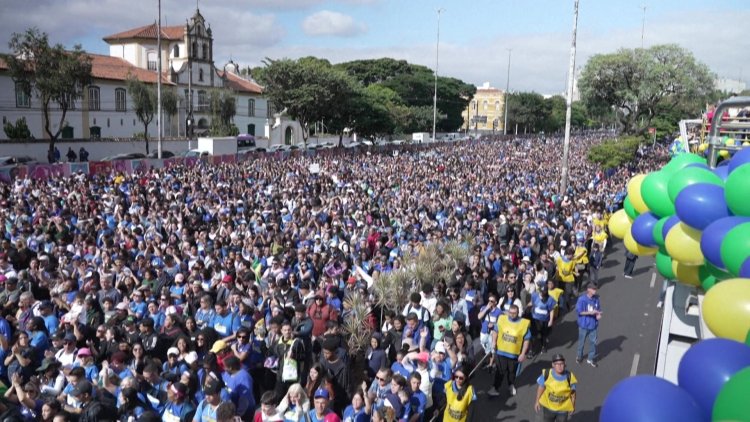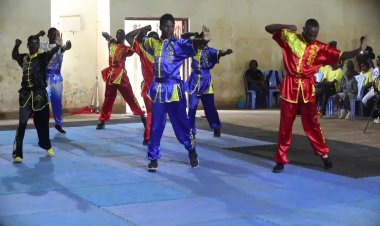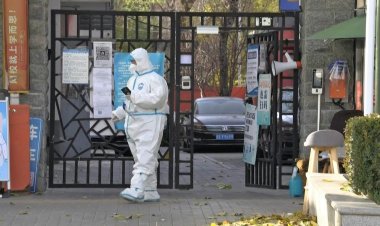Evangelical March for Jesus Fills Streets of Sao Paulo

With their hands in the air, swaying, praying and singing to booming gospel music, hundreds of thousands of evangelical Brazilians flooded the streets of Sao Paulo for their annual "March for Jesus."
The event has taken on political overtones in recent years as the evangelical Christian community in Brazil has ballooned and become increasingly influential, notably under far-right former president Jair Bolsonaro.
A massive Israeli flag borne by the crowd pointed to conservative support for the country, in stark contrast to the stance of leftist President Luiz Inacio Lula da Silva who has fiercely criticized its war in Gaza.
Lula did not attend the march but sent a government representative.
"As a Christian, I feel happy to see the extraordinary dimension that this event has taken and the significant role it plays in the lives of many Brazilians, promoting values of peace, faith, love for others and solidarity," Lula wrote in a letter published by the presidency.
The right-wing mayor of Sao Paulo, Ricardo Nunes, who will seek a new mandate in October municipal elections, addressed the crowd.
"I am very happy to be here, I love Jesus and I love you," said the ally of Bolsonaro, who did not attend this year.
Brazil is the world's largest Roman Catholic country, however evangelicals now make up about a third of its population of 203 million. The leaders of some of the most powerful evangelical churches say they will be in the majority in 10 years.
Elsewhere in Brazil, Catholics turned streets into artworks with colorful carpets made of flowers and salt for a religious procession marking Corpus Christi, a national holiday that falls 60 days after Easter.
Catholics celebrate Corpus Christi by making salt carpets in São Gonçalo, a suburb of Rio de Janeiro, where worshippers use 52 tons of coarse salt to make 253 carpets. With more than one kilometer of salt carpets, the celebration is known as the largest in Latin America.















